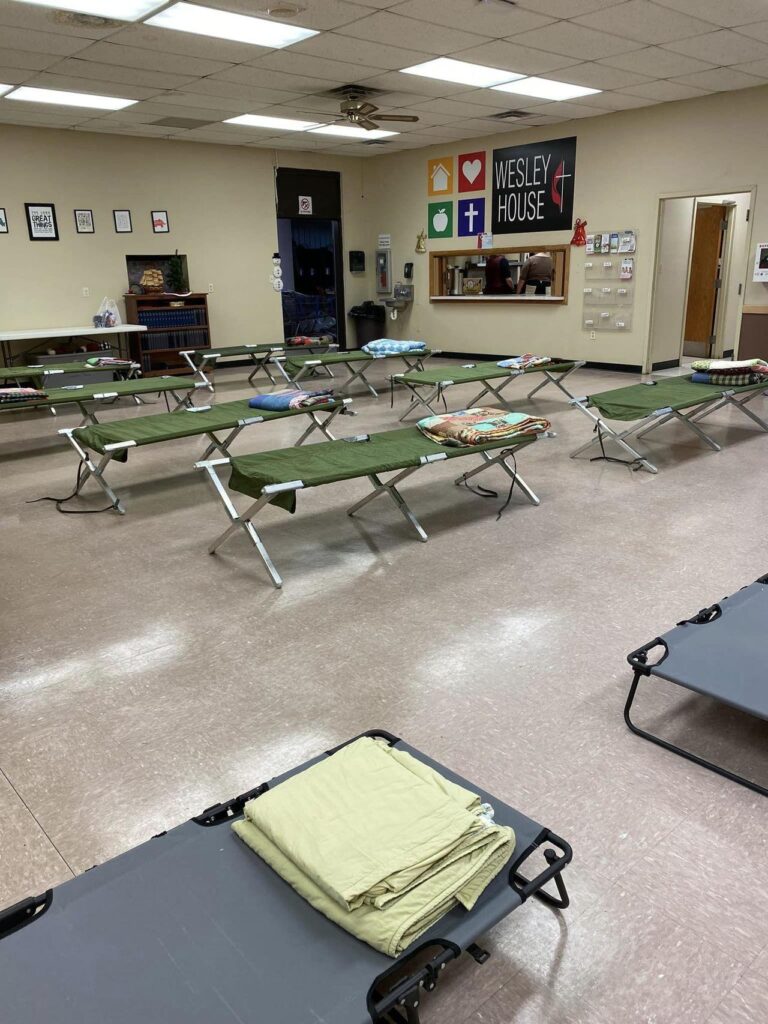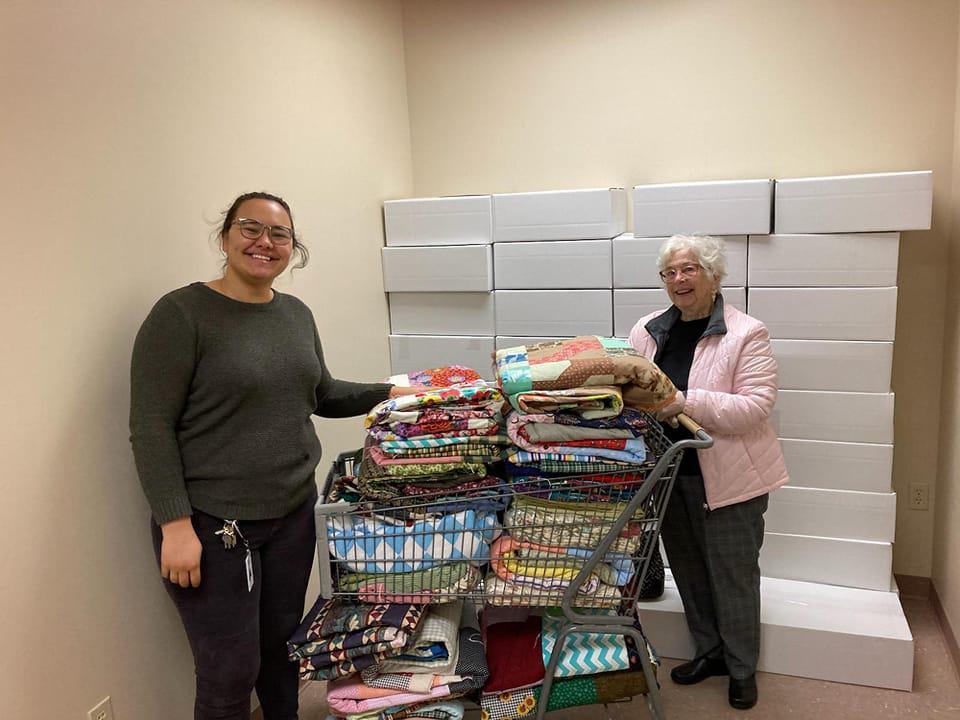| The first eight weeks of the overnight emergency winter shelter at Wesley House have been life-saving for some in the local homeless community. During a community meeting on Friday regarding the shelter, a gentleman who is homeless walked in and shared how grateful he was for the emergency shelter at Wesley House. He didn’t say much, but what he did say was, “You couldn’t have picked a better group of people to run that organization. I personally want to thank you because you saved my life.” |

He was one out of 53 guests who took refuge at the shelter from severe winter weather. On Nov. 1, CHC/SEK provided a director to oversee the day-to-day management of services at Wesley House, and shortly after, forecasters warned of extreme winter temperatures, and a temporary 90-day shelter was opened just before freezing temperatures rolled in.
At the meeting, Leah Gagnon, CHC/SEK director of Patient Engagement and Wesley House, shared the celebrations and lessons learned since the shelter opened. The overnight shelter operations are expected to end on March 21 as winter subsides. She shared that Wesley House received more than 20 donations from individual households, partner organizations, and churches with $27,000 raised and counting. More than $3,000 worth of supplies was donated, and local businesses have provided support in various ways.
Because of everyone’s support, not only was there no loss of life due to cold weather conditions, 53 individual guests were able to stay warm. Because of CHC/SEK’s focus on coordinated services, 27 individuals exited from homelessness, with 11 from that group obtaining permanent housing with others now living in transitional facilities.
“It’s a huge thing to celebrate. That’s what we really wanted to focus on,” Leah said. “We couldn’t do this without the current success of our housing partners and the strength and continuity of care. That’s both the City Housing Authority and Catholic Charities. These partnerships highlight and emphasize the strength of what currently exists in this region.”
Leah listed a few other highlights, including one where a guest was homeless for 25 years and was able to be reintegrated and connected with her family. Additionally, a few were homeless for approximately seven years and are now on a list for apartments.
Staff and Leah have discovered that many shelter guests face chronic homelessness, meaning they’ve been homeless for one year or more. Many of them have also grown up in Pittsburg.
One of the shelter’s challenges was that the infrastructure was not built for shelter use. “The building has really, really struggled with people being in and out of it for 24 hours,” Leah said, adding this includes the use of trash service, pest control, washer, dryer and showers. She also noted that a space that can ideally hold 25 to 30 beds would allow the shelter to serve more guests based on how many individuals they had to turn away.
Many guests were nervous about leaving their belongings behind to go to appointments during the day, and there became a storage problem. A local business donated a storage container to help alleviate this issue.
Emergency responders were available when emergencies occurred, and CHC/SEK’s administration has ongoing communication with them to keep people safe and emergency preparedness.
Leah believes creating the emergency shelter was the first step to a broader community conversation around homelessness. She and her team will attend a housing conference in April in Springfield, MO, learning how Eden Village, a national model addressing homelessness building tiny home communities for the chronically homeless and disabled.


